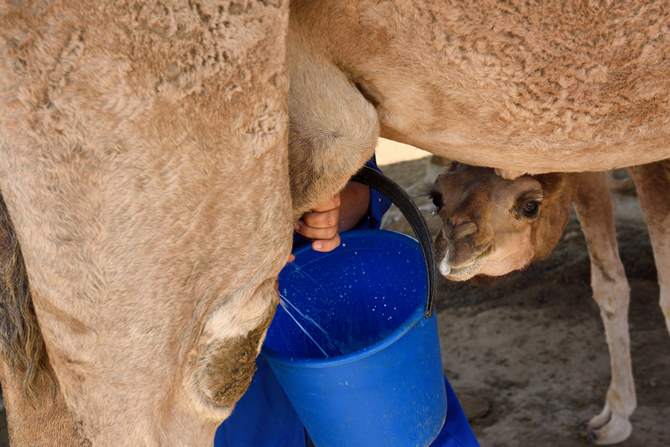 FOODEX: Simon Blazeby, Director, Reed Sunaidi Exhibitions
FOODEX: Simon Blazeby, Director, Reed Sunaidi Exhibitions
1. Saudi Arabia is the single-largest food market in the Gulf, accounting for more than 60% of the region’s total food consumption.
While Saudi Arabia is the region’s largest food producer, representing 74.1% of total production in the GCC, it imports more than $14.2bn worth of food and beverage products each year to meet its consumption demands. Affecting all areas of the F&B sector, analysts expect imports will increase further to feed Saudi Arabia’s burgeoning population and expanding domestic market.
2. Foodex, which take place under the patronage of the Saudi Arabian Ministry of Agriculture, is the largest food and beverage exhibition in the Kingdom.
Jeddah is Saudi Arabia’s trading hub for food importers and is an important focus for exporters due to its unique geographical location in the Kingdom. This makes it the logical city to host Foodex. In 2013 the show had over 10,200 food buyers and key decision makers from around the world who made the trip to Foodex Saudi to meet with suppliers and producers.
3. While Saudi Arabia is the largest producer of dairy products, cereals, meat, fish and vegetables in the region, it only produces about half of its requirements locally.
Even though Saudi Arabia is the largest producer in the region in some categories such as dairy, meat and vegetables, it still relies on imports for almost all food categories. Currently, the Kingdom meets 35% of its domestic food demand. However, reliance on imports is likely to increase as the Saudi government has mandated to reduce wheat production to conserve water (effective 2016), despite cereal products accounting for almost 50% of total food consumption. For this reason, some of the food products most in demand are cereals and meat, but there is no sector that doesn’t hold potential in the Saudi market.
4. Knowledge of the market, physical commercial presence and legal support is essential for foreign companies who want to invest in Saudi Arabia’s F&B market.
In order to conduct business on a regular basis in Saudi Arabia, an on-ground presence is essential. By committing to the development of the local economy, foreign companies are viewed as serious and trusted players in the local market. It is imperative that F&B companies looking to expand in Saudi Arabia identify a trusted company formation partner, who can provide expertise on the best license structure to benefit their business. Given the fluid nature of the legal environment in Saudi Arabia and the consequences of getting things wrong, it pays to engage and retain legal counsel who can assist your business across the spectrum of company formation, labour law, commercial and contractual matters. Attending events such as Foodex Saudi helps build strong relationships and gain valuable insights into the Kingdom’s F&B sector.
5. Meat consumption and halal industries are expected to grow.
Traditionally, dairy products and cereals have been the favorite food items in Saudi Arabia. Put together, they accounted for more than 70% of the food consumed during 2010. According to the latest industry reports, over the next five years, i.e. 2012-2017, cereals are expected to remain the largest segment, although its growth rate is expected to be slower than other food categories. Further, with the rise in disposable incomes and changing dietary patterns, the growth in meat consumption is expected to outpace the growth in other food categories.
The value of the Saudi halal food market alone is estimated at US$6billion annually. Halal food is big business and the Kingdom takes it extremely seriously to the extent that it has called for tighter regulations on halal importers. These regulations concern halal food production, including stunning and automated mechanical slaughter, control and supervision of halal food, the economic and strategic development of global halal trade and permissible food additives.
6. Fast food and food processing fastest growing segments in the food industry supply chain in Saudi Arabia.
The fast food market is expected to reach a value of $4.5 billion in the next three years, while the packaged food market is expected to grow to $21.7 billion in 2014 with sales growing by around five per cent annually. Food processing is one of the fastest growing segments in the food industry supply chain and Saudi Arabia, which relies mostly on imported raw materials, is expanding considerably in this area. This has prompted many international companies to set up licensing agreements with local manufacturers in Saudi Arabia to produce their brands.
7. Palates are changing. Young demographic is becoming increasingly health conscious.
As a result of exposure to new foods and flavours, Saudi palates are changing, creating demand for new food and restaurant concepts. The relatively young and educated population in the Kingdom is becoming increasingly health conscious, embracing health and dietary foods and beverages; a market growing at nearly 12% a year. This is also in response to the serious medical issues so prevalent in Saudi Arabia – diabetes, hypertension, cardiovascular disease and obesity.



